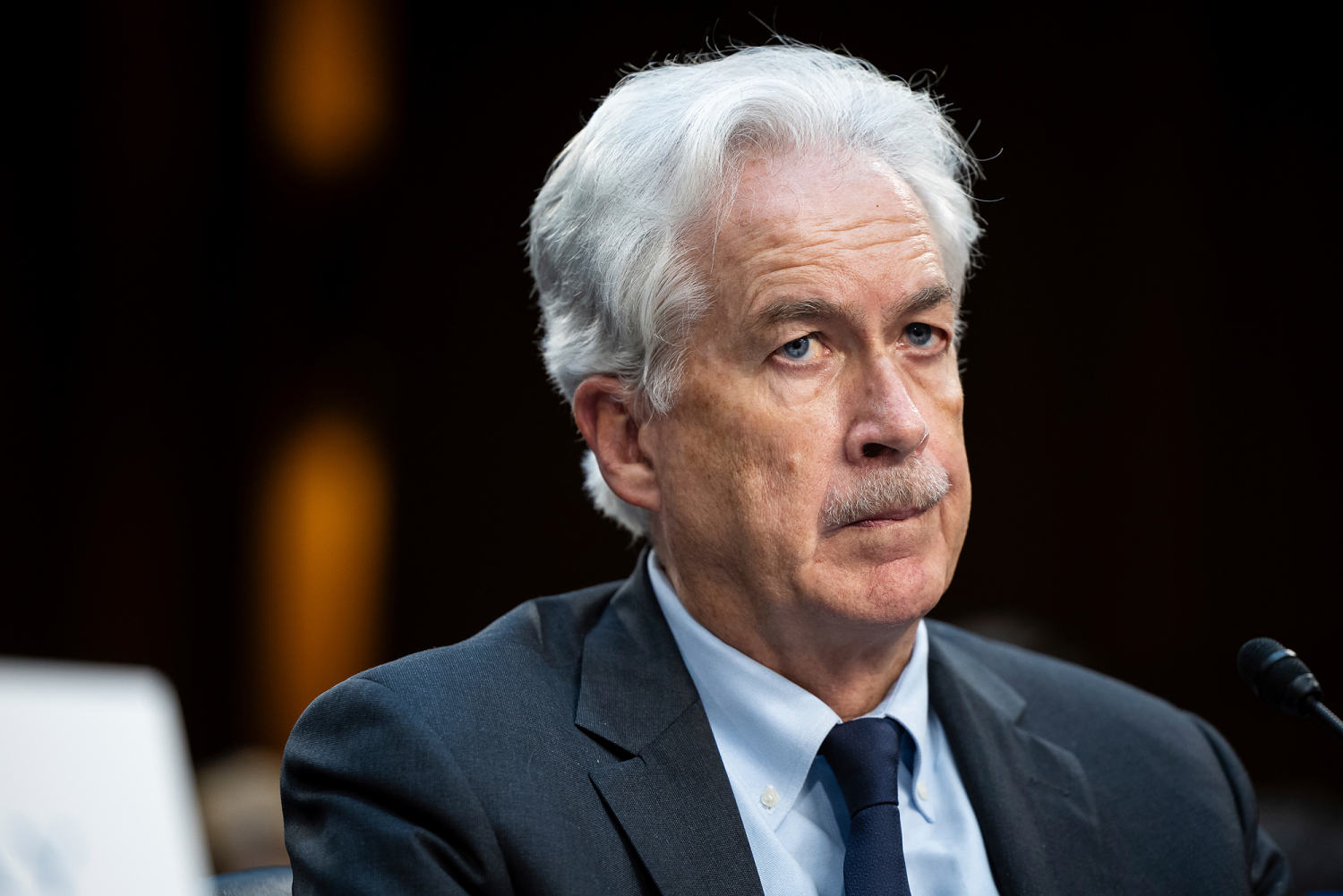Iranian attack on Israel was a ‘spectacular failure’


Iran’s missile and drone barrage against Israel last weekend “turned out to be a spectacular failure,” with nearly all of the projectiles failing to hit Israel, CIA Director William Burns said Thursday.
Speaking at an event at the George W. Bush Presidential Center in Dallas, Burns said that the thwarting of the missile and drone assault showed the strength of Israel’s military and that it had “friends” in the world, including the U.S. and other countries that helped, as well.
“The Iranians fired off something like 330 drones and missiles combined,” Burns said. “Of those 330 missiles, only four or five actually impacted in Israel, and none of them did any significant damage.
“It’s a reminder of the quality of the Israeli military,” he added. “It’s a reminder of the fact that the Israelis have friends starting with the United States, but others, as well.”
President Joe Biden and other senior U.S. officials hope tensions may ease slightly in the region but said Israel was still weighing how it would respond to Tehran.
The Israeli government, “as we sit here this afternoon, is considering a response to what happened last Saturday night,” Burns said.
“I think the broad hope of the president and policymakers in the administration is that we’ll find a way to de-escalate the situation,” he said.
Ammunition shortages in Ukraine
Burns, a former career diplomat who was ambassador to Russia, said he had visited Ukraine about a month ago and heard firsthand from Ukrainian military officers about their critical ammunition shortages.
Burns said he was in Ukraine just days after Russian forces captured the town of Adiivka in eastern Ukraine.
“I talked to one of the senior officers who was there, and he described it in pretty simple terms,” Burns said. “He said, ‘We fought as long and as hard as we could, but the Russians just kept coming, and we ran out of ammunition.’”
He said a 2,000-strong Ukrainian brigade in the Adiivka battle tried to fend off Russians with “a grand total” of 15 artillery rounds a day and 42 mortar rounds.
“They were overwhelmed, but it wasn’t for lack of bravery or determination on their part,” Burns said.
He said he feared there would be more battlefield losses in Ukraine unless Congress approved a long-delayed military aid package.
Sleepless night
Asked what kept him up at night, Burns mentioned the threat of terrorist attacks, the war in Ukraine, the conflict in Gaza and the risks posed to CIA employees around the world.
But he also recounted an experience that literally kept him up all night when he agreed to attend a training session for new CIA clandestine officers at the agency’s training ground, known as “The Farm,” near Williamsburg, Virginia.
The overnight instructional course, which included members of the Army’s elite Delta Force, featured a training exercise in which CIA colleagues had been taken “hostage.”
But no one told the trainees or the Delta Force commandos that the role player posing as a “hostage” for the exercise was Burns himself, who had been tied to a chair for the simulation, he said.
“It’s, like, 4:30 in the morning, and this exercise culminates with a hostage rescue mission by Delta group,” Burns said. The Delta Force “major who was commanding it had only been told that there’s this simulated situation where there are some CIA officers with someone impersonating a senior CIA officer. They’ve been captured and they’re held hostage,” Burns said.
“So it’s worth the price of admission to see the look on the face of that young major as he came up the stairs in this hostage rescue effort and saw a real live CIA director tied to a chair,” he said.







